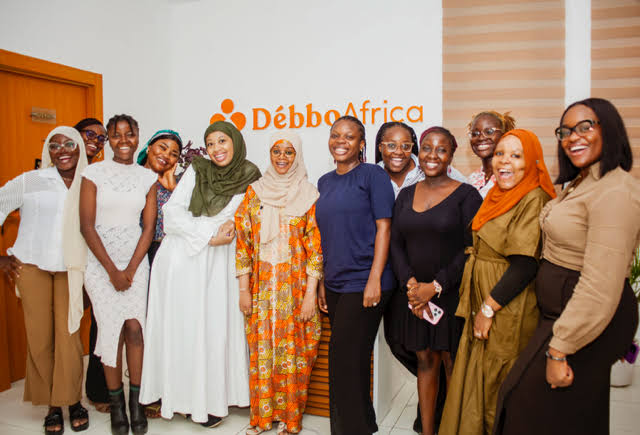Débbo Africa, a women’s health startup founded by Nigerian doctors Dr Zara Modibbo and Dr Aisha Wanka, is on a mission to close Africa’s gender health gap through technology-driven, women-centred care.
The company’s latest innovation, MyDébboApp, is an AI-powered platform designed to help women identify symptoms, understand possible causes, and connect to qualified medical specialists, all from their mobile phones.
The app’s feature, an AI triage assistant known as Dr Déb, simulates the first step of a doctor’s consultation. Users type in their symptoms, and the tool follows up with structured medical questions, analyses responses, and recommends the appropriate kind of specialist to see. Within minutes, women receive clear explanations and next steps.
“This (Dr. Déb) is not an autonomous AI; this is human-centred AI that is designed not to replace health professionals and doctors, but actually to help them,” Dr Modibbo explains.
What You Should Know
By combining artificial intelligence with human medical oversight, Débbo Africa says it aims to make healthcare more accessible, empathetic, and accurate for African women, particularly in areas where specialist care is scarce.
Unlike general-purpose AI chatbots that rely on large, unverified datasets, Dr Déb was developed under a human-in-the-loop model, with every layer reviewed by qualified doctors on the Débbo Africa team. This ensures accuracy, cultural sensitivity, and safety.
Consultation notes are automatically saved to the user’s digital medical record, and previous health documents can be uploaded for continuity of care. MyDébboApp also features a community space; a moderated forum where women can exchange experiences and access culturally relevant health content.
The founders say to promote accessibility, parts of the app; including Dr Déb, educational content, and community forums will remain free under a freemium model.
The team is also working to make the app usable across different literacy levels. While the current version runs primarily in English, upcoming updates will support local languages and culturally familiar expressions, helping women describe symptoms naturally and without barriers.
What This Means
Across Africa, women have long described the experience of not being heard by medical professionals.
Many say they are dismissed or rushed through appointments, particularly when symptoms are invisible or difficult to explain. Dr Modibbo believes that the issue often goes beyond indifference.
“One of the reasons why a lot of women feel unheard is because our health systems are stretched. They’re underfunded, and there are not that many medical specialists as well,” she explains.
She noted that for the past three years, Débbo Africa has provided women with access to virtual consultations, diagnostic tests, radiology scans, peer support groups, and specialist referrals.
Looking Ahead
Since its inception, Débbo Africa has facilitated over 5,000 diagnostic tests across 10 Nigerian states and partnered with more than 100 medical specialists.
According to the team, the long-term vision is to make MyDébboApp a single entry point for women’s healthcare in Africa, a place where women can access reliable information, expert consultations, and ongoing care without friction or fear.
Research shows that African women experience uterine fibroids at rates three to four times higher than women of other races. Meanwhile, cervical cancer remains the leading cause of death among women in 21 of sub-Saharan Africa’s 48 countries. Of the 20 countries worldwide with the highest burden of cervical cancer, 18 are in the World Health Organisation (WHO) African region.
By targeting these pressing issues, experts say Débbo Africa is addressing the continent’s most urgent women’s health challenges, conditions where delayed diagnosis often leads to devastating consequences.
Talking Points
It is commendable that Débbo Africa is tackling one of the most overlooked challenges in the healthcare sector; the gender health gap through an AI-powered platform built specifically for African women.
MyDébboApp’s ability to triage symptoms using Dr Déb, its AI assistant, stands out as a major innovation. By guiding users through structured medical questions and directing them to the right specialists, it removes the guesswork and delays that often prevent women from getting timely care.
At Techparley, we recognise how impactful this approach could be in regions where healthcare systems are overstretched, and women frequently struggle to access or trust medical advice.
However, the platform’s long-term impact will depend on user trust and adoption. Continuous education, digital literacy support, and partnerships with local health agencies will be crucial for scaling across Nigeria and beyond.
With the right policy support and collaboration, MyDébboApp could become a continent-wide gateway to accessible, personalised, and dignified healthcare for women.
——————-
Bookmark Techparley.com for the most insightful technology news from the African continent.
Follow us on Twitter @Techparleynews, on Facebook at Techparley Africa, on LinkedIn at Techparley Africa, or on Instagram at Techparleynews.






